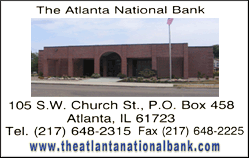 This year, the city did away with the Saturday
planning meetings for the city budget. Instead, the new city
administrator, Sue McLaughlin, worked one-on-one with department
heads and Mayor Keith Snyder to develop a draft. The council
reviewed the draft last week at an early session prior to their
regular meeting.
This year, the city did away with the Saturday
planning meetings for the city budget. Instead, the new city
administrator, Sue McLaughlin, worked one-on-one with department
heads and Mayor Keith Snyder to develop a draft. The council
reviewed the draft last week at an early session prior to their
regular meeting.
This week, the budget talks turned to some of the resources
McLaughlin is recommending for additional revenues for the city, as
well as making a few cuts in expenditures. As it stands, the city is
a little over $80,000 short of having a balanced budget.
To get the topic rolling, McLaughlin opened the door by saying:
"There is a one-page memo I distributed to give you an overview of
where we are at in terms of decisions that need to be made. The
mayor and I thought it would be easier to drill it down to a few
things on the revenue side and what to fund and not fund on the
expenditure side."
David Wilmert was the first with a question. He asked if the
revenue figures they were seeing were based on discussions that had
taken place the week before.

McLaughlin said yes. She noted that she had reduced the expected
revenue from changing the traffic ticket policy. She said she'd done
this because she knew it would take time to make the changes needed
if the city does want to adopt a new policy, so it would probably
not be something the city would realize revenue from immediately.
Chuck Conzo, city treasurer, noted that in the memo handed out,
several projections from the previous meeting had been reduced. For
example, he noted the projected revenues from increasing the fees
for birth and death certificates had been $10,000 last week and were
now only $5,000.
McLaughlin said she had lowered the estimated revenues on several
of the items because she didn't have concrete information on what
the revenues could be.
She explained that at the moment she wasn't confident on where
the council was going to land on some of these changes. Once she
knows what the council wishes to do, she can come up with better
figures. She said she wasn't telling the council to add up the
amounts and this is definitely what they will get. "Out of all the
ordinances we could change, we might get $500, we might get $5,000,"
she said.
She also explained that the same was true with the local debt
recovery program, which would be used only for delinquent parking
tickets. She told the council that the city may collect $13,000 in
the first year, but once those debts are cleaned up, that figure
could drop drastically in the coming year.
Local debt recovery program
Snyder said he wanted to try to tackle one issue at a time and
see where the council stood. He began with the local debt recovery
program, saying it was a state program whereby local debts could be
collected by the state. The money owed to the city would be withheld
from state reimbursements such as income tax and lottery winnings.
The general consensus of the council was that the city should
definitely pursue this.

Traffic tickets and fees
Next the city talked about changing the manner in which the city
issues traffic tickets. Right now the tickets are issued as traffic
violations; however, they could be issued as ordinance violations if
the city has the proper ordinances in place.
Currently the proceeds from a traffic violation are split among
the city, county and state. On an average $120 traffic ticket, the
city collects only $43.69.
If the city goes to issuing ordinance violations, it could then
collect the full amount of the ticket. McLaughlin explained this
does not include court costs assessed by the county. It was also
noted that court costs apply only when a ticket is contested.
McLaughlin said she had also reduced the traffic ticket figure
from last week because, again, getting everything set up to take
over that revenue stream would take time, and it could be that the
city won't have all the changes in place even within the first half
of the fiscal year.